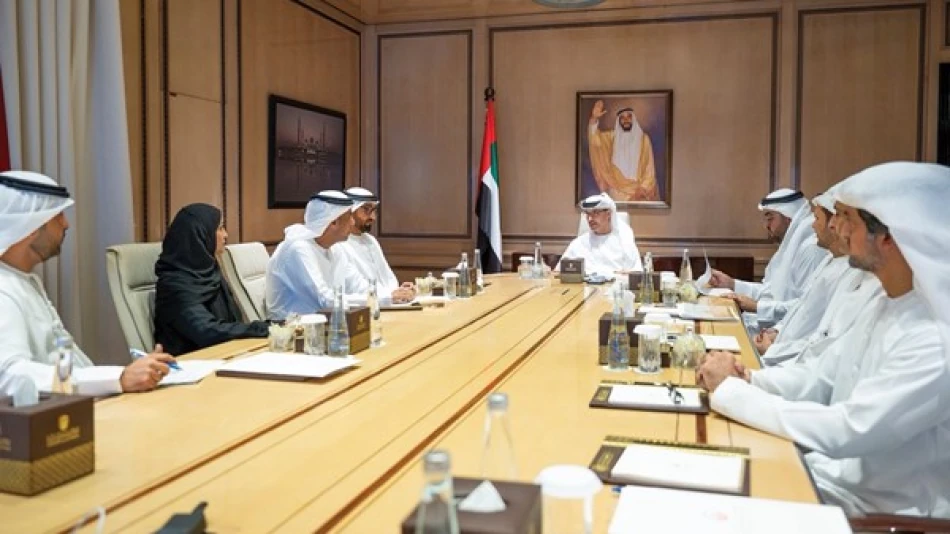
Abu Dhabi Crown Prince Welcomes Delegation from Abu Dhabi Heritage Authority
UAE's Al Ain Region Emerges as Cultural Heritage Preservation Hub with Major Infrastructure Push
The UAE is doubling down on cultural preservation efforts in Al Ain, with senior leadership backing strategic heritage projects that position the historic region as a premier destination for traditional Emirati culture. The initiative reflects broader national priorities to safeguard cultural identity while building tourism infrastructure that can compete with regional heritage sites.
High-Level Support Signals Strategic Priority
Sheikh Hazza bin Zayed Al Nahyan, the Ruler's Representative in Al Ain Region, recently met with Abu Dhabi Heritage Authority leadership to review ongoing cultural preservation initiatives. The meeting, led by Authority Chairman Faris Khalaf Al Mazrouei, focused on strategic heritage projects designed to protect Al Ain's historical legacy while developing supporting infrastructure for traditional activities.
This high-level engagement underscores the UAE's commitment to cultural tourism as an economic diversification strategy. Unlike purely commercial heritage projects, these initiatives aim to maintain authentic cultural practices while creating sustainable tourism revenue streams.
Infrastructure Development Meets Cultural Authenticity
Community-Centered Approach
The heritage authority's strategy emphasizes community engagement through awareness campaigns, festivals, and cultural events specifically targeting younger generations. This approach mirrors successful cultural preservation models in countries like Japan and South Korea, where traditional practices are maintained through active community participation rather than museum-style preservation.
Strategic Regional Positioning
Al Ain's development as a heritage destination comes as the broader Gulf region competes for cultural tourism markets. Saudi Arabia's massive cultural projects under Vision 2030 and Qatar's post-World Cup cultural initiatives have intensified regional competition for heritage tourism revenue. The UAE's focus on Al Ain leverages the region's existing UNESCO World Heritage status while building new visitor infrastructure.
Economic and Cultural Impact
The initiative aligns with President Sheikh Mohamed bin Zayed Al Nahyan's broader vision for cultural preservation, but also serves clear economic purposes. Heritage tourism represents a growing market segment, particularly as regional visitors seek authentic cultural experiences beyond traditional shopping and entertainment offerings.
For investors and tourism operators, Al Ain's heritage development signals opportunities in cultural hospitality, experiential tourism, and traditional craft industries. The government backing provides regulatory certainty that has been crucial for similar projects in other emirates.
Implementation Strategy
The Abu Dhabi Heritage Authority's commitment to "continue implementing initiatives and programs that contribute to cultural heritage sustainability" suggests a long-term investment approach rather than short-term promotional campaigns. This methodology has proven effective in heritage preservation projects across the Middle East, where sustained funding and community involvement determine success rates.
The presence of senior officials including Sheikh Mohammed bin Hamdan bin Zayed Al Nahyan and Acting Director General Abdullah Mubarak Al Muhairi at strategic meetings indicates institutional commitment beyond individual leadership changes, providing stability for long-term cultural and economic planning.
Most Viewed News

 Layla Al Mansoori
Layla Al Mansoori






